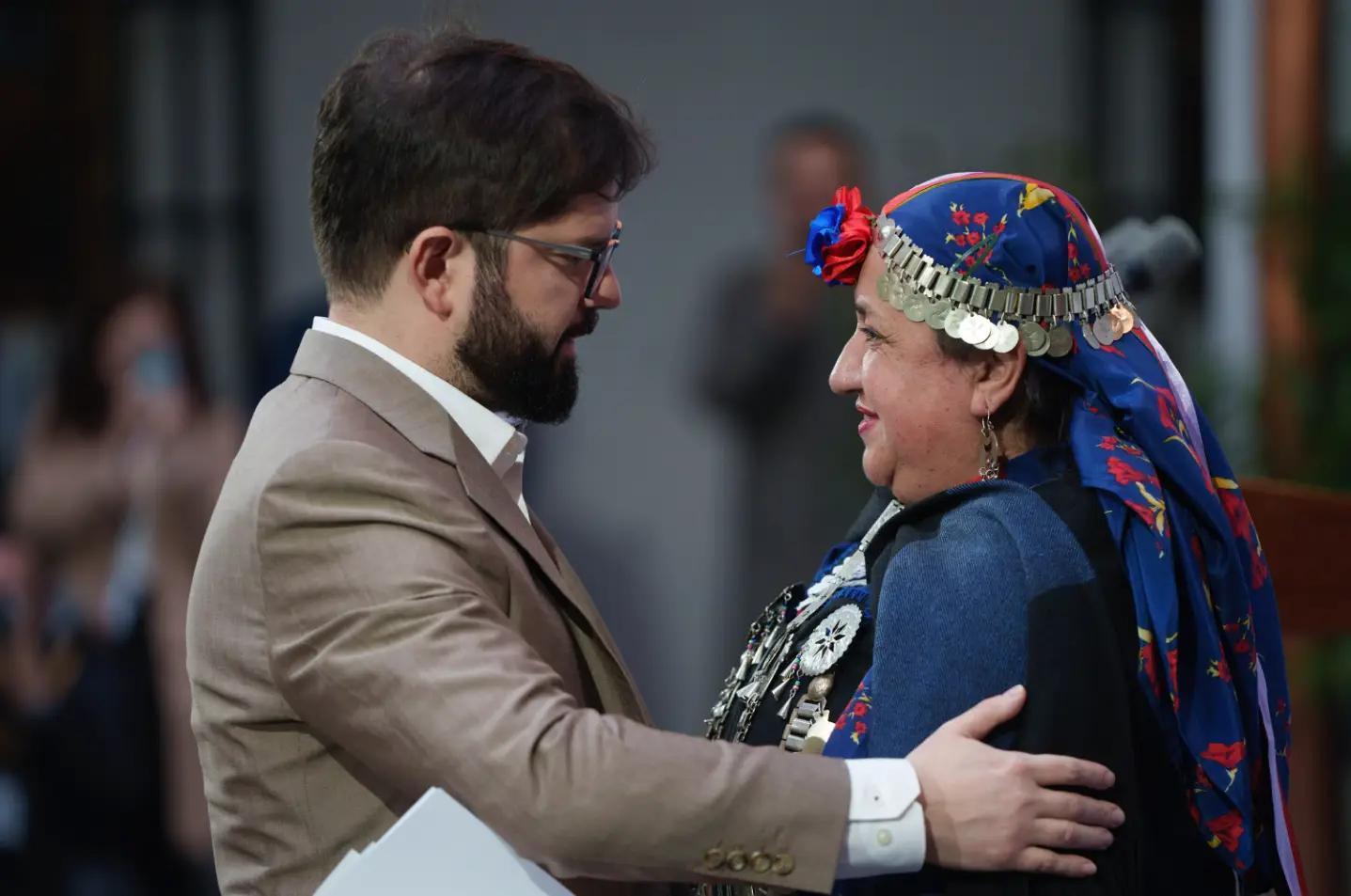Gabriel Boric, the young president who emerged from the student movement of the previous decade, took office embodying the demand for change sparked by the 2019 social uprising and buoyed by the public’s rejection of the Pinochet-era far right, which had triumphed in the first round of the presidential election. Yet in his first year in office, the government revealed that its approach to the Mapuche issue would largely continue Chile’s long-standing pattern of state domination over Indigenous peoples. His presidency has been marked by Indigenous struggles for political participation, efforts to engage in political and institutional processes, the presentation of concrete proposals, racist attacks, territorial militarization and a familiar sense of disillusionment due to the lack of results.
To understand the policies carried out by the state under Boric’s leadership, three fundamental issues must be considered: the defeat of the Constitutional Convention and its consequences; the Buen Vivir Plan and the continuation of the state of emergency; and finally, the establishment of the Commission for Peace and Understanding.
First, the resounding defeat of the constitutional proposal drafted between 2021 and 2022 by the Constitutional Convention left lasting marks. The process began with the hopeful inclusion of reserved seats for Indigenous peoples (seven for the Mapuche) and its first president was Elisa Loncon, a Mapuche leader. The draft included many long-standing Indigenous demands. But hope gave way to disappointment after the proposal was soundly rejected in the September 2022 plebiscite. In the aftermath, Indigenous proposals—especially the idea of a plurinational state—were blamed as a primary cause of the failure.
The right interpreted this result as a clear rejection by Chileans of Mapuche demands, with immediate consequences for Indigenous presence and influence—both in the streets and in the 2023 constitutional process, which included only one Indigenous representative, who eventually resigned. This second process coincided with a surge in support for the right and far right in the polls, as Mapuche demands were demonized and racist, xenophobic rhetoric became normalized—particularly on social media—where Elisa Loncon, the former Convention president, became a main target.
This context struck a heavy blow to the left and to Chile’s social movements and organizations, but most of all to the government, which lost control of the public agenda. Boric had entered office supporting territorial reparations and collective rights for the Mapuche and he had criticized the use of the state of emergency in the region under Sebastián Piñera’s administration.
Although the incoming government initially refrained from renewing the state of emergency, just a few months into his term Boric reinstated it, citing an uptick in arson attacks. In practice, this has meant the militarization of the region through the deployment of police, military forces, the Navy and aerial patrols to control the territory. While violent incidents have decreased, the region has now been under military control for over three years—nearly the entire Boric presidency. In this way, the government has resorted to the same tactic that has been used since the invasion of these territories: repression and coercion. The state of emergency has been extended more than 50 times.
Beginning in 2022, Boric’s administration implemented what has been called the Buen Vivir Plan, a reference to Indigenous worldviews, but in this case a public policy program rolled out under emergency conditions. The plan includes road construction, access to clean water, infrastructure investment for communities and territorial dialogue.
With nine months left in Boric’s term, the Commission for Peace and Understanding—established in 2023 to find medium- and long-term solutions to the conflict in the Araucanía—has now presented its final report. The commission was made up of eight members, including long-time Mapuche movement figures and politicians such as Senator Francisco Huenchumilla and former Constitutional Convention member Adolfo Millabur.
Among the report’s 21 recommendations are long-standing promises such as constitutional recognition, revitalizing Indigenous languages and political representation, as well as newer proposals like reparations for all victims of violence. These measures were backed by seven of the eight commission members, notably including a member of the far-right Republican Party who claimed she faced pressure from her party to reject the report and subsequently resigned.
The recommendations have been met with caution, as they revisit historic demands like acknowledging the state’s appropriation of Mapuche lands—the root of the conflict. Over the past few decades, many initiatives have raised hopes of resolving the conflict, only to be shelved and forgotten. Moreover, many of these proposals require legislative action, meaning their fate hinges on the political calendar.
With just nine months remaining in Boric’s presidency, it seems unrealistic to expect these initiatives to materialize, especially with the strong possibility that the next elections will bring the Pinochet-era right back to power. In this context, even the commission’s name—“for Peace and Understanding”—feels ironic in a militarized territory.
In the end, the policies implemented by Boric’s government toward the Mapuche appear to be a continuation of those of previous administrations, rather than a genuine attempt to resolve the conflict.
*Machine translation, proofread by Ricardo Aceves.













